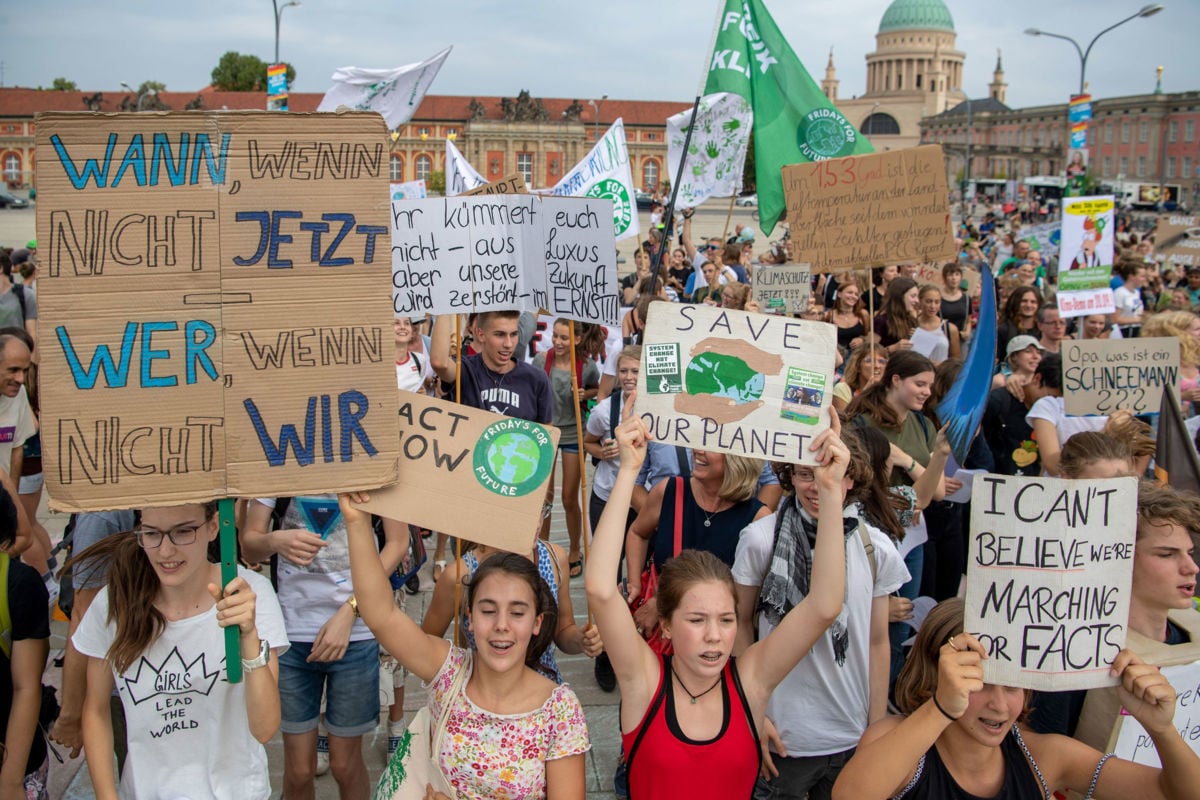In the United States, there has been much attention given to the various proposals for a Green New Deal. While there have been legitimate questions about paying for a large push to reduce greenhouse gas emissions, many accept the need for such measures for the survival of the planet.
However, there has been less attention paid to the failure of European countries to act in this area, in spite of the fact that a substantial program would be virtually costless for Europe. There has been far more attention paid to the politics around Brexit in the United Kingdom than to the important question of how Europe will address global warming.
Just to be clear, the European countries have been far better global citizens in this area than the United States. Their per-person emissions are roughly half as much as the United States. Furthermore, many European countries have already taken aggressive measures to promote clean energy and encourage conservation.
But in the battle to slow global warming, simply doing better than the United States is not good enough. The European Union can and must do more to reduce its greenhouse gas emissions.
This is where the continent’s mindless push for austerity comes into the picture. European governments, led by Germany, have become obsessed with keeping deficits low and balancing budgets. Most have small deficits or even budget surpluses.
Germany exemplifies the European austerity obsession with a budget surplus that is close to 2.0 percent of GDP ($420 billion in the U.S. economy). To some extent, fiscal austerity is not a choice. The eurozone’s rules require low budget deficits for the countries that use the euro, but even countries outside the eurozone have joined the austerity party. The United Kingdom has a budget deficit of less than 1.5 percent of GDP, Denmark less than 0.5 percent of GDP, and Sweden has a budget surplus of close to 0.5 percent of GDP.
There are certainly circumstances under which budget deficits can be too high, but these clearly do not apply to the countries in the European Union at present. Inflation has been persistently low and has been falling in recent months. The inflation rate for the eurozone countries has averaged just 1.0 percent over the last 12 months.
The story is even more dramatic if we look at interest rates. The classic problem of a large budget deficit is that it leads to high interest rates that crowd out investment. Not only are interest rates extraordinarily low across Europe, in many countries, investors have to pay governments to lend them money.
The interest rate on a 10-year government bond in France is -0.43 percent. In the Netherlands, it is -0.57 percent, and in Germany it is -0.71 percent. That means investors have to pay Germany 0.71 percent annually to lend the government money.
This is the context in which the concern for low budget deficits in these countries is utterly mindless. The financial markets are effectively begging these governments to borrow more money, but they refuse to do so.
The need to address global warming makes this refusal especially painful. The fact that interest rates and inflation are so low indicates that these governments are needlessly sacrificing growth and jobs. That story is bad enough, but the picture is much worse when we consider the pressing need to address global warming.
These governments could either pay directly to install solar and wind power, or provide large subsidies to businesses and homeowners. They could be subsidizing the switch to electric cars and making mass transit cheap or free, while they vastly ramp up capacity. They could also be providing large subsidies to countries in the global South to take the same measures, and to also save the rainforest in the Amazon.
The best part of this story is that they don’t need to raise taxes to pay for this spending. There is considerable slack in these economies, which means that they can devote several hundred billion dollars annually to slow global warming without requiring additional taxes from their populations. It is possible that a really ambitious program, which might be needed, will require additional tax revenue, but for now, these countries are needlessly leaving money on the table while the planet burns.
It is common in policy circles to ridicule U.K. Prime Minister Boris Johnson for his seemingly mindless pursuit of Brexit. While Johnson surely deserves much ridicule, the proponents of austerity deserve a much larger dose. Keeping people out of work by failing to take more aggressive steps to address global warming is far more clownish than anything that Boris Johnson is doing with Brexit.
Press freedom is under attack
As Trump cracks down on political speech, independent media is increasingly necessary.
Truthout produces reporting you won’t see in the mainstream: journalism from the frontlines of global conflict, interviews with grassroots movement leaders, high-quality legal analysis and more.
Our work is possible thanks to reader support. Help Truthout catalyze change and social justice — make a tax-deductible monthly or one-time donation today.
